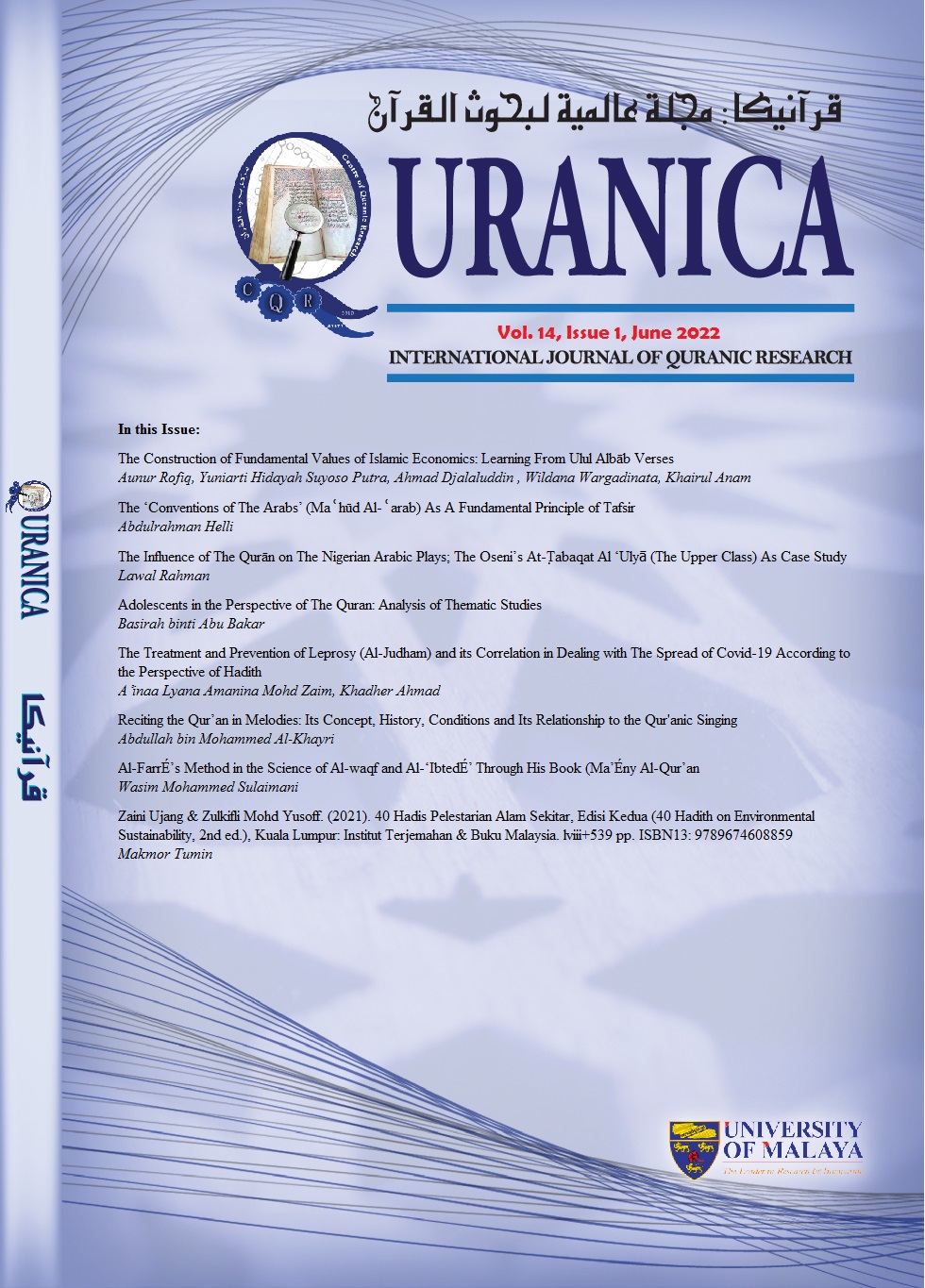The ‘Conventions of The Arabs’ (Maʿhūd Al-ʿarab) As A Fundamental Principle of Tafsir
DOI:
https://doi.org/10.22452/quranica.vol14no1.2Keywords:
Arabic Linguistic Conventions, Literary Conventions, Revelation of The Qurʾān, Maʿhūd Al-ʿArab, Al-Shāṭibī, Al-Farāhī, Late Antiquity, Al-Ummiyyūn.Abstract
This article aims to re-examine a rather neglected yet fundamental principle in the Islamic exegetical heritage, namely, ‘considering the conventions of the Arabs at the time of revelation of the Qurʾān’ - murāʿāt maʿhūd al-ʿArab fī ʿaṣr an-nuzūl. The study adopts the historical approach, inductive and analytical method. It begins with a theoretical and historical introduction of the meaning and implications of this principle by demonstrating -through examples from the tradition- how it was employed for the interpretation and comprehension of the Qurʾān. The article then offers an examination of the significance of this principle in light of the writings of al-imām al-Shāṭibī, who christened the appellation maʿhūd al-ʿArab and then proceeds to presenting the approach of the Indian exegete ʿAbd al-Ḥamīd al-Farāhī on the relevance of the common parlance of the ancient Arabs, with a comparative analysis of their respective approach. The study concludes that the exegetes took care of the conventions of the Arabs, but that was not always the case, the significance of the research can be seen through the prospects of implementing this principle in the field of Qurʾanic Studies for the development of a historical-critical hermeneutical approach for textual analysis.
Downloads
Downloads
Published
Issue
Section
License
Disclaimer
QURANICA makes every effort to ensure the accuracy of all its contents. However, opinions, discussions, views and recommendations are expressed in this journal do not necessarily reflect the official policy of QURANICA or views of its editors or publishers. Therefore, QURANICA and its publishers will not be liable for any controversy may be arisen. The journal reserves the right, at its sole discretion, to change its terms and conditions of publications.
Copyright
It is a condition of publication that manuscript submitted to the journal have not been published, accepted for publication, nor simultaneously submitted for publication elsewhere. By submitting a manuscript, the author(s) agrees that copyright for the article is transferred to the publisher, if and when the manuscript is accepted for publication.






